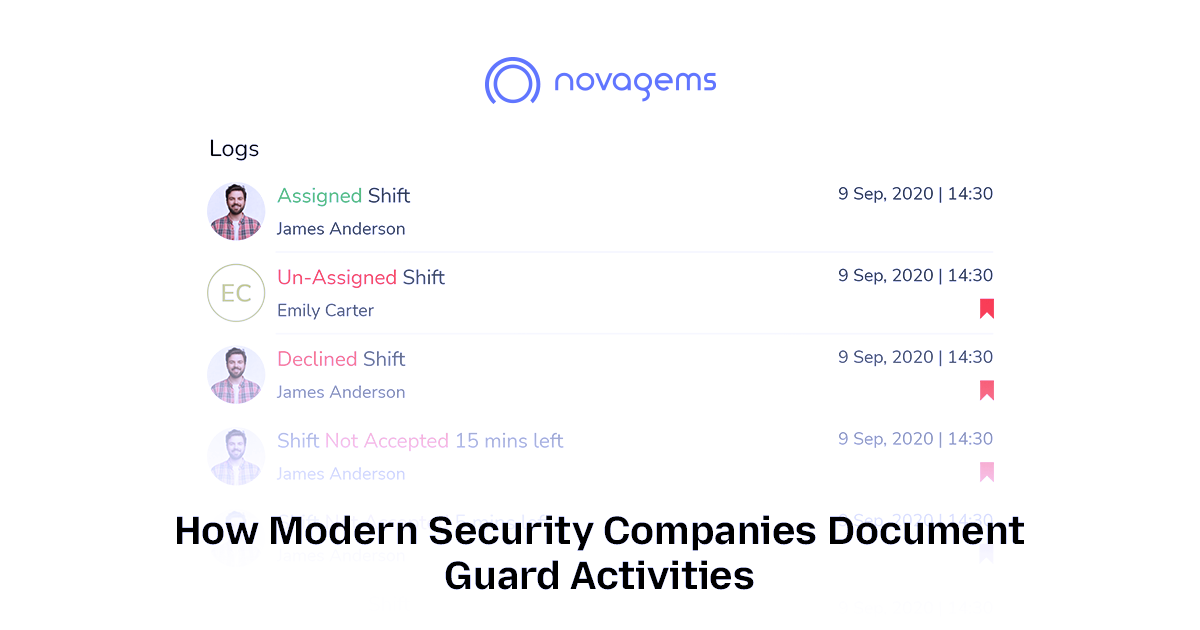5 Strategies for Improving Cleaning Staff Job Satisfaction
Published on: Wed, Nov 22, 2023
Last updated: 2025-10-07
Read in 8 minutes

Key Takeaways
- Job satisfaction among cleaning staff reduces turnover, increases productivity, and enhances service quality.
- Use a mix of recognition, training, autonomy, healthy environment, and wellbeing support.
- Incorporate ergonomics, career paths, client feedback, and structured communication..
The cleaning industry has been undergoing significant changes, with cleaning staff playing a crucial role in maintaining a healthy environment. However, the physically demanding nature of the job often leads to low job satisfaction and high turnover rates, largely due to the lack of recognition.
When employees feel valued, safe, and empowered, they deliver better performance — and stick around longer.
In the cleaning / janitorial business, staff turnover is a serious challenge. According to one industry analysis, the turnover rate in cleaning can average nearly 200% annually. (ICE Cobotics)
That means you’re constantly training new people, losing institutional knowledge, and risking inconsistency.
Improving job satisfaction is not a “nice to have” — it is a business imperative. Happy cleaners clean better, stay longer, cost less to manage, and reflect positively on your brand.
Employers can enhance cleaning staff job satisfaction by implementing simple strategies, creating a positive work environment, and boosting morale. These efforts can result in numerous benefits, including increased productivity and engagement among staff. Furthermore, satisfied employees are less likely to leave their jobs, leading to cost savings for employers in terms of recruitment and training expenses.
Additionally, content and fulfilled cleaning staff are more inclined to deliver excellent customer service. This is essential, as a clean and well-maintained environment leaves a positive impression on customers and visitors.
In summary, investing in improving cleaning staff job satisfaction is a wise decision for employers, as it can result in heightened productivity, reduced turnover rates, and enhanced customer service.
Having a clear cleaning plan is something that a company needs if they are failing to attain and retain their employees.
Creating a Positive Work Environment
First things first – let’s create a vibe that everyone loves! A positive work environment is like sunshine on a cloudy day. When our cleaning staff feels good about where they work, magic happens. So, how do we do it? Simple! Smile, say hello, and show gratitude. A little kindness goes a long way, trust me!
Play music or podcasts in the background, provide comfortable break areas, or offer snacks and drinks. Employee happiness in the cleaning industry will increase if the employees were feeling seen. A positive work environment is something that must persist all across the industry.
Every day your staff walks into the building environment you create. If it’s dark, poorly ventilated, noisy, or physically unsafe, morale suffers.
- Ensure physical comfort: Lighting, air quality, noise control, restrooms, break rooms all matter. Research shows that environmental comfort (lighting, noise, air) explains a significant portion of job satisfaction. (arXiv)
- Ergonomic tools & equipment: Use adjustable tools, lighter machinery, wheeled carts, and ergonomics-aware design to reduce strain and injuries. New-generation machine designs with user-centric interfaces improve engagement. (Newsroom)
- Safety protocols & training: Use PPE, safe chemical handling, slip-resistant footwear, and regular safety audits.
- Clean & dignified spaces: Staff deserve clean personal areas (lockers, toilets, break rooms).
Respectful culture: No shouting, blaming or micromanagement. Encourage respect, inclusive language, psychological safety.
Recognition and Appreciation: The Key to Motivation
Imagine this: You clean a whole room, and nobody notices. Bummer, right? That’s why recognition and appreciation are like superheroes in our cleaning crew world. A high-five, a “thank you” note, or even a small award can make a big difference. When they feel appreciated, they’ll put in even more effort – it’s like a secret motivation booster!
People need to feel seen — especially for work that often happens behind the scenes.
- Formal & informal recognition: Use “Cleaner of the Month”, peer shout-outs, thank-you notes, certificates or small bonuses.
- Share client praise: When a client sends a message like “the lobby looks immaculate,” forward it to the cleaning staff with names. This shows their work matters. (Janitorial Manager)
- Transparent performance metrics: Use tracking systems so staff see how they’re doing (e.g., quality scores, client ratings).
Encourage peer recognition: Let staff nominate each other for doing exceptional work.
This can be done through formal employee recognition programs, as well as informal gestures of appreciation. Recognizing and rewarding good work will help cleaning staff to feel valued and appreciated. It will also motivate them to continue to do good work.
Investing in Training and Skill Development
You know what’s super cool? Learning new things! Our cleaning staff is no exception. By investing in training and skill development, we help them grow professionally. Maybe they can learn advanced cleaning techniques or how to use new cleaning gadgets. When they feel confident and skilled, they tackle their tasks like superheroes on a mission!
Growth opportunities fuel satisfaction. People get motivated when they see a path forward.
- Regular training: Beyond basics, teach advanced cleaning, green techniques, equipment operation, infection control, etc.
- Cross-training / job rotation: Rotate staff through different tasks and sites (e.g., from restroom cleaning to lobby detail). This reduces monotony and builds versatility.
- Autonomy & involvement: Allow staff to suggest improvements to cleaning routes or schedules. Let them make small decisions.
- Mentorship & coaching: Pair junior staff with experienced members. Hold regular check-ins.
- Certifications & career ladder: Let cleaners progress to team lead, inspector, trainer roles.
Evidence:
Studies show that engaged employees are up to 20% more productive on average. (ICE Cobotics) When people see improvement in themselves, they stay longer.
If your employees have a skill set, your company will grow.
Effective Communication and Team Bonding
Communication is the glue that holds teams together. We can make our cleaning crew feel like part of a big, awesome family by talking and listening. Team meetings, where everyone can share ideas and thoughts, are like a pizza party – everyone loves them! Bonding activities like picnics or games create a friendly atmosphere. Happy teams work together like a dream!
Good leaders listen, and good organizations talk.
- Regular one-on-ones and meetings: Let staff voice concerns, suggest improvements, raise issues.
- Pulse surveys / feedback loops: Short surveys (weekly / monthly) help you catch problems early.
- Open door policy: Encourage staff to approach supervisors whenever needed.
- Share company vision / purpose: Explain “why” — how their work contributes to health, safety, client satisfaction.
- Involve staff in decisions: For example, let them pilot a new cleaning tool or route plan before broad rollout.
Bonus strategy — career discussions / pathing:
Use periodic reviews to set goals with each employee (e.g., “in 1 year, you may become team lead or specialist”). This shows you see them long-term.
Create opportunities for cleaning staff to communicate with their supervisors and managers. This could be done through regular one-on-one meetings, staff meetings, or employee surveys.
Balancing Workload and Well-being
Lastly, let’s talk about balance. Work is important, but so is relaxation and rest. Our cleaning staff works hard, so let’s make sure they have reasonable hours and breaks. Nobody can clean well if they are tired, right? By ensuring a balanced workload and promoting well-being, we keep our cleaning crew energetic and ready to conquer any mess! Do not just worry about Well-being of your employees but customers as well. Make a perfect balance between those two.
When you have a distributed team working from remote locations balancing workloads becomes important. Have effective channels for communication so that teams can stay connected and on the same page. Small gestures of kindness will take you a long way. Small gestures like these make their day and remind them that their hard work is appreciated every single day.
Excess workload or rigid shifts destroy morale quickly.
- Use fair scheduling: Distribute shifts so no one is overworked. Rotate night/weekend duty equitably.
- Flexible schedules where possible: Let staff request shift swaps, preferred times, or compressed schedules.
- Breaks & rest periods: Enforce adequate breaks, not just for legal compliance but for real mental/physical rest.
- Monitor job load: Use software or manual review to avoid overburdening any staff member.
Wellness support: Offer wellness initiatives, counseling, health checks, or fitness breaks.
Work-life balance initiatives are strongly correlated with employee motivation, retention, and satisfaction. A recent study showed positive correlation between flexible work practices and motivation. (arXiv)
This makes the team feel happy and motivated to work. Employee Well-being in Cleaning Jobs has gained a significant amount of noise. Work life balance is the trend that is there to stay.
Addressing Key Concerns and Myths
What causes high turnover in cleaning jobs?
High physical strain, low wages, lack of recognition, unclear role definitions, unsafe conditions, no career paths, rigid schedules.
How much does job satisfaction impact performance?
Research in various industries shows satisfied workers can be ~15–20% more productive, with fewer errors and absenteeism.
Can investing in job satisfaction really pay off financially?
Yes — reducing turnover saves costs of recruiting, training, lost productivity. One estimate: replacing an employee can cost 50–200% of their salary.
What’s a reasonable recognition program?
Even small gestures — weekly shout-outs, monthly awards, client praise sharing — can make big differences. No giant budget required.
How to measure staff satisfaction?
Use pulse surveys, engagement metrics, attrition rates, direct interviews, quality scores, suggestion boxes.
Conclusion
By embracing these additional tips, we not only make our cleaning crew smile but also create a workplace where everyone feels valued and cherished. Ask your employees what makes them happy. Ask them about their likes and dislikes. What they like while working in the company and what they dislike as well. These gestures may feel small and insignificant, but they will have an impact on your staff that you do not know.
Get a Free Trial
Sign up For Newsletter
Latest Blog Posts
Get Started
Start being productive & grow your business
with Novagems





